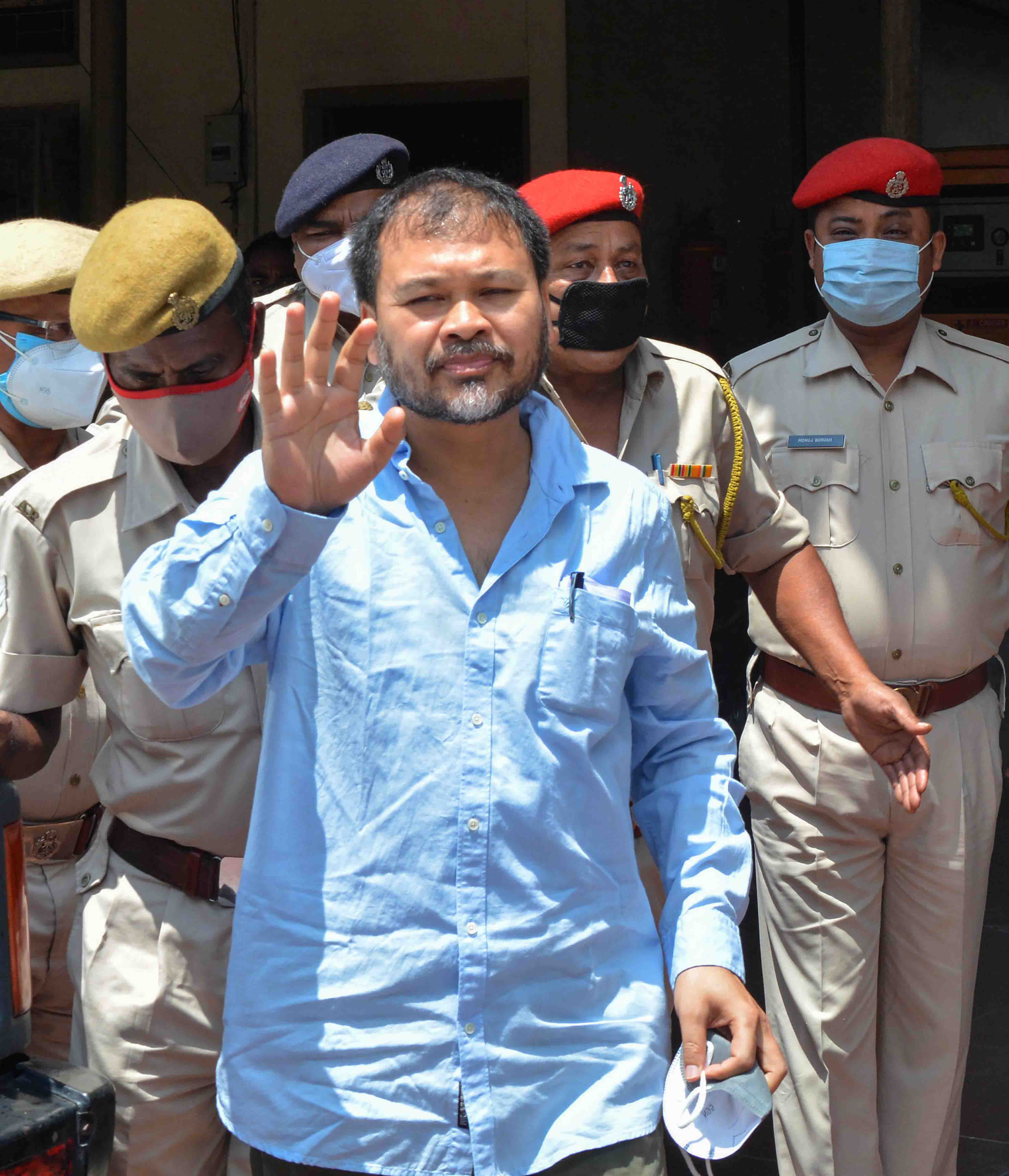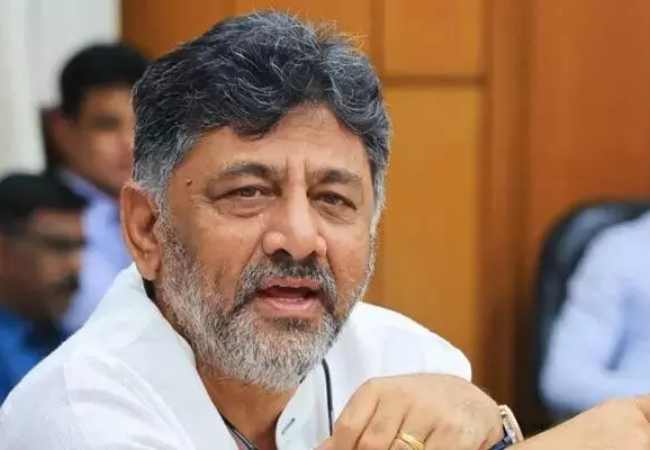Guwahati, Jun 22: A National Investigation Agency (NIA) court on Tuesday cleared Sivasagar MLA Akhil Gogoi in one of the two cases against him under the Unlawful Activities (Prevention) Act, 1967 for his alleged role in violent protests against the Citizenship (Amendment) Act in Assam.
NIA Special Judge Pranjal Das did not frame charges against Gogoi, who was arrested in December 2019, in connection with the case registered in the Chabua police station.
The court also discharged his two associates, Jagatjit Gohain and Bhupen Gogoi, of all charges under UAPA in the case.
Gogoi, president of the Raijor Dal, was earlier granted bail in the original case filed at the Chabua police station, which was later transferred to the NIA.
The NIA is investigating two cases, which were initially registered at Chandmari and Chabua police stations, related to the alleged role of Gogoi and his three colleagues in the violent protests.
Charges were framed against his third associate, Bhaskarjyoti Phukan, but not under the UAPA but under Section 144 IPC (Joining unlawful assembly armed with deadly weapon) and the case has been now transferred to the court of the chief judicial magistrate, Dibrugarh.
The NIA court is also hearing on Tuesday the cases of the Chandmari police station which was also transferred to the NIA.
The court had rejected his bail application in the Chandmari police station case in August last year following which he had challenged it in the Gauhati High Court.
After the high court rejected Gogoi's bail plea, he moved the Supreme Court which decided not to "consider the petition at this stage".
Gogoi was arrested on December 12, 2019 from Jorhat, during the height of the anti-CAA protests in the state, as a "preventive measure" in view of the deteriorating law and order situation in the state and his three associates were taken into custody the next day.
The cases were later handed over to the NIA and they were booked under UAPA for their alleged role in the violent protest and their possible links with Maoist elements.
Gogoi became the first jailed leader in Assam to win an assembly election this year and he is currently lodged at the Gauhati Medical College Hospital for treatment of his ailments.
Let the Truth be known. If you read VB and like VB, please be a VB Supporter and Help us deliver the Truth to one and all.
Bengaluru (PTI): Karnataka has proposed a new Information Technology Policy for 2025–2030, offering extensive financial and non-financial incentives aimed at accelerating investments, strengthening innovation and expanding the state's tech footprint beyond Bengaluru.
The Karnataka Cabinet gave its nod to the policy 2025–2030 with an outlay of Rs 445.50 crore on Thursday after the Finance Department accorded its approval.
The policy introduces 16 incentives across five enabler categories, nine of which are entirely new, with a distinctive push to support companies setting up or expanding in emerging cities.
Alongside financial support, the government is also offering labour-law relaxations, round-the-clock operational permissions and industry-ready human capital programmes to make Karnataka a globally competitive 'AI-native' destination.
According to the policy, units located outside Bengaluru will gain access to a wide suite of benefits, including research and development and IP creation incentives, internship reimbursements, talent relocation support and recruitment assistance.
The benefits also include EPF reimbursement, faculty development support, rental assistance, certification subsidies, electricity tariff rebates, property tax reimbursement, telecom infrastructure support, and assistance for events and conferences.
Bengaluru Urban will receive a focused set of six research and development and talent-oriented incentives, while Indian Global Capability Centres (GCCs) operating in the state will be brought under the incentive net.
Incentive caps and eligibility thresholds have been raised, and the policy prioritises growth-focused investments for both new and expanding units.
Beyond incentives, the government focuses on infrastructure and innovation interventions.
A flagship proposal in the policy is the creation of Techniverse -- integrated, technology-enabled enclaves developed through a public-private partnership model inside future Global Innovation Districts.
These campuses will offer plug-and-play facilities, artificial intelligence and machine learning and cybersecurity labs, advanced testbeds, experience centres, and disaster-resistant command centres.
There will also be a Statewide Digital Hub Grid and a Global Test Bed Infrastructure Network, linking public and private research and development, and innovation facilities across Karnataka.
The government has proposed a Women Global Tech Missions Fellowship for 1,000 mid-career women technologists, an IT Talent Return Programme to absorb experienced professionals returning from abroad, and broad-based skill and faculty development reimbursements.
Shared corporate transport routes in Bengaluru and tier-two cities will be designed with Bengaluru Metropolitan Transport Corporation and other transport entities to support worker mobility.
The government said the policy is the outcome of an extensive research and consultation process involving TCS, Infosys, Wipro, IBM, HCL, Tech Mahindra, Cognizant, HP, Google, Accenture and NASSCOM, along with sector experts and stakeholder groups.
It estimates an outlay of Rs 967.12 crore over five years, comprising Rs 754.62 crore for incentives and Rs 212.50 crore for interventions such as Techniverse campuses, digital grid development, global outreach missions and talent programmes.





